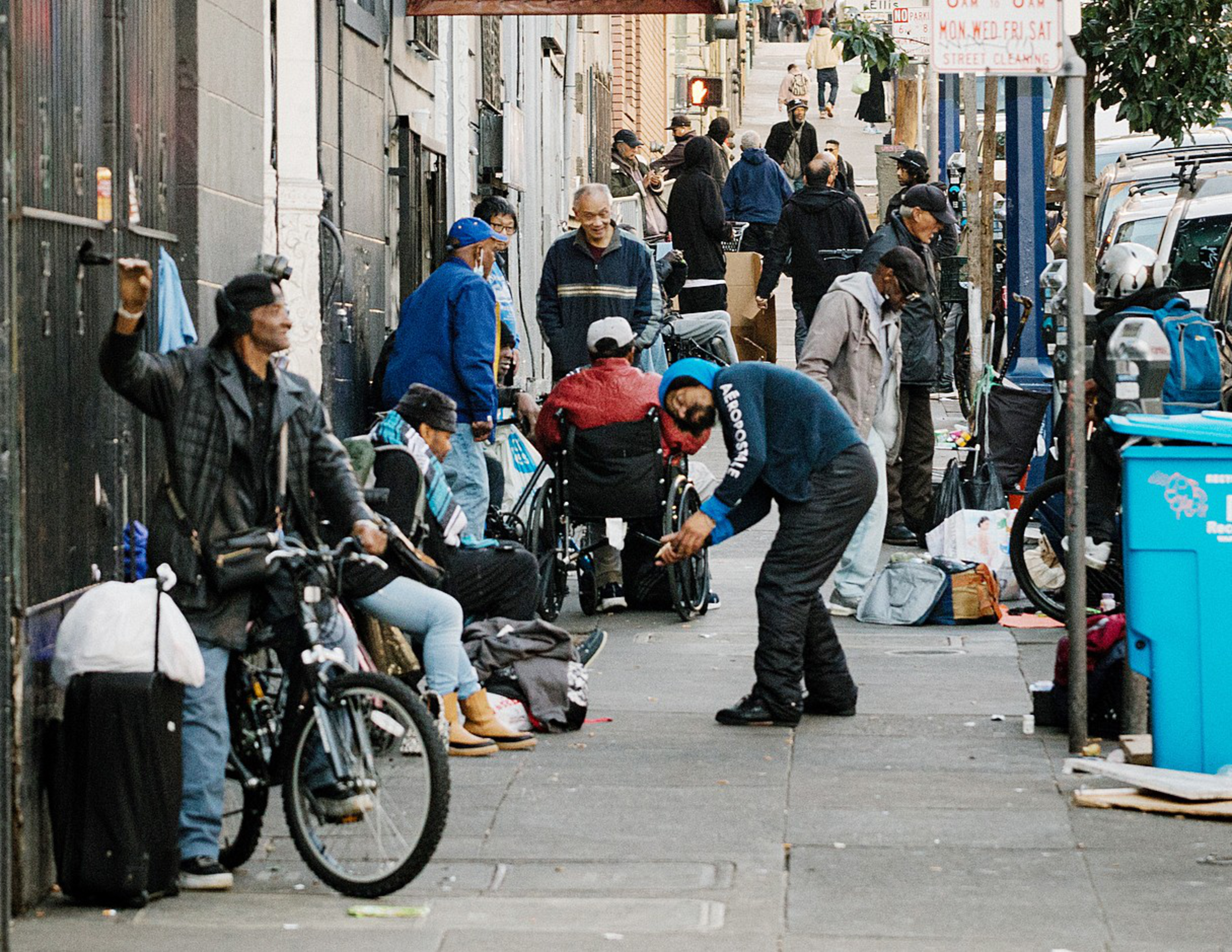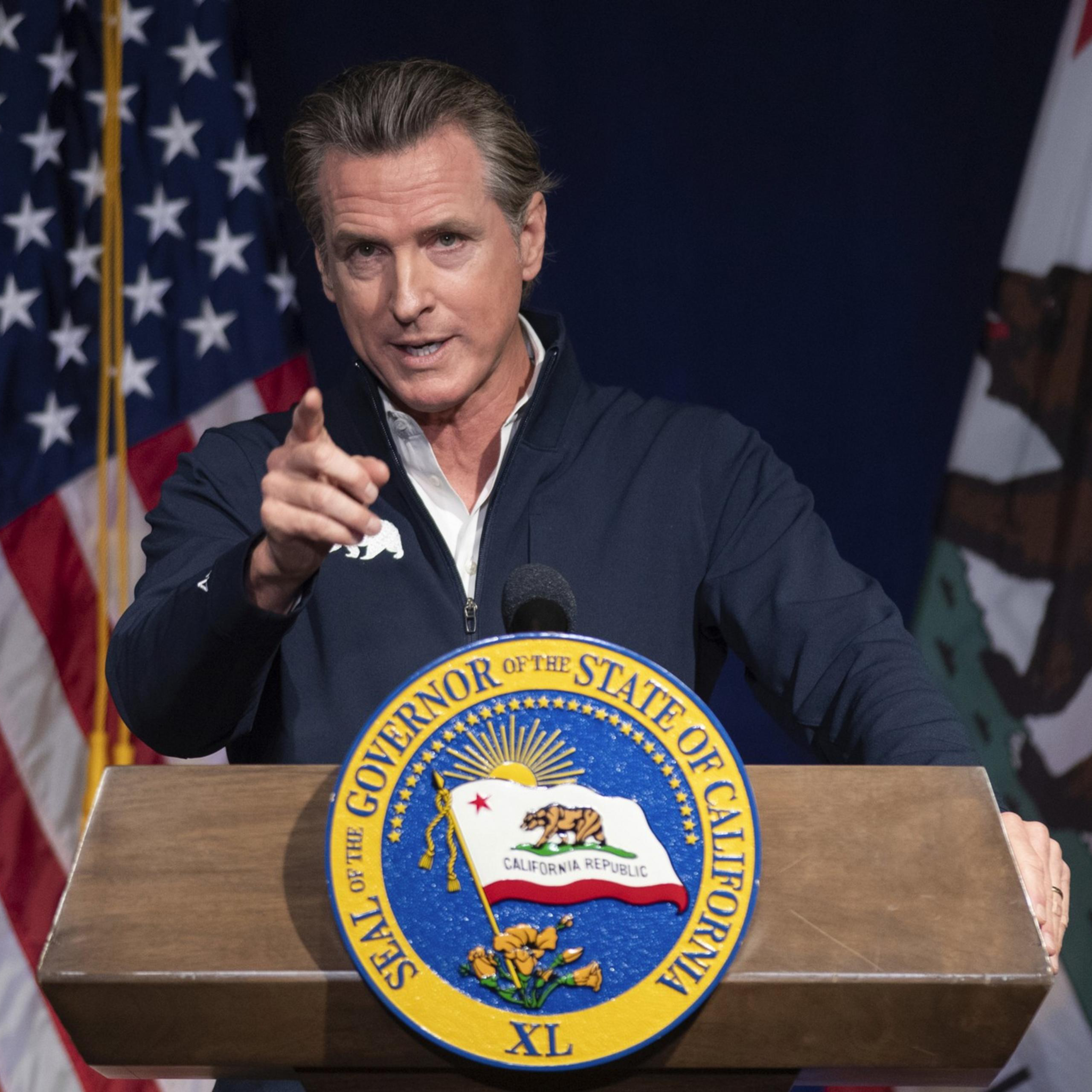Gov. Gavin Newsom has until Oct. 12 to take action on more than 800 bills that state lawmakers have sent to his desk, including dozens with far-reaching consequences for the Bay Area. Those measures would impose regulations on artificial intelligence companies, boost housing production, and shore up transit funding, among other outcomes.
Of note: Some of this year’s most consequential bills were authored by state Sen. Scott Wiener (D-San Francisco), who passed 12, bringing his career total to a tidy 100, according to his office. That’s the kind of résumé that makes a guy think he can run for Congress.
In some cases, the fights are far from over. Here’s a rundown of the biggest bills that made it to Newsom’s desk.

AI regulations dominate session
Perhaps no legislative issue looms larger over the Bay Area than what state lawmakers intend to do with AI, an industry projected to generate trillions of dollars in economic impact (opens in new tab) in the coming years.
President Donald Trump has effectively given the industry carte blanche to do whatever it wants, as long as CEOs bend the knee. But Newsom — who has his own presidential ambitions — seems intent on striking a balance between letting innovation flourish and addressing serious risks with the technology.
Big Tech spent heavily on lobbying expenses related to the dozens of AI-related bills introduced this year. Apple, Alphabet, Amazon, Meta, and the trade group TechNet spent a combined $2.5 million on lobbying in the first six months of 2025.
It’s no surprise, then, that the governor’s office was more hands-on with AI legislation this session.
Newsom was most notably involved with Wiener’s Senate Bill 53 after vetoing a more expansive version last year that threatened significant financial penalties over AI models found to have contributed to mass casualty events. In his veto message, Newsom created a task force of AI experts to study the issue and recommend best practices for the technology, which were folded into this year’s revised legislation.
SB 53 is a transparency-focused bill that garnered the support of AI company Anthropic. But it received pushback from other major industry players, including OpenAI, over concerns that instruction should come from the federal level. But after Wiener amended his bill to include the task force’s recommendations, it’s far more likely to earn Newsom’s blessing.
“The conversation this year around frontier AI regulation was much narrower because of the report the governor commissioned,” said Jason Elliott, a former deputy chief of staff to Newsom who served as an adviser to the committee that published the governor’s AI report. “Everyone came to this legislative effort with good intentions.”
Lawmakers also focused on regulating chatbots, igniting another fierce AI debate in the Legislature.
Assemblymember Rebecca Bauer-Kahan (D-Orinda) faced intense lobbying from the industry on her Assembly Bill 1064, which would regulate “companion chatbots” for youth users. She ended up scaling back the legislation to ensure its passage. State Sen. Steve Padilla (D-San Diego) was similarly forced to water down Senate Bill 234, another companion chatbot bill that requires reporting on the impact of the tools starting in 2027, after it received major pushback.

Year of the YIMBY
YIMBY groups rejoiced this summer when Newsom signed two bills meant to curtail the California Environmental Quality Act for certain new housing and infrastructure projects.
They earned another win last week, when the Legislature narrowly approved Wiener’s Senate Bill 79, which would allow for larger housing projects near public transit. The measure builds on Wiener’s previous bills that eliminated red tape on housing development, along with other reforms passed in recent years.
Over the last eight years, Wiener has been one of the most dogged state legislators on the controversial issue of housing. This grueling work has hit blockades, but it has gotten easier in recent years as YIMBY groups have grown more powerful in the state Capitol.
“I don’t think there are major hurdles left on process reform — it’s implementation,” said Corey Smith, executive director at Housing Action Coalition. “The funding for affordable housing is the biggest thing still out there.”
Wiener joked that SB 79’s passage felt like “a capstone” moment for his career.
“But that suggests there’s nothing more to come,” he said, “and we have a lot more work to do in housing.”

Transit: Destination unknown
Wiener and state Sen. Jesse Arreguín (D-Berkeley) worked this year to pass Senate Bill 63, which would put a sales tax measure on the November 2026 ballot to fund Bay Area transit, including AC Transit, BART, Caltrain, and Muni.
Supporters of the bill said transit providers risk cutting services without the funding, but negotiations over the measure didn’t come without conflict. Assemblymember Diane Papan (D-San Mateo) nearly derailed SB 63, according to sources, over concerns that the spending would ignore her area in favor of San Francisco and the East Bay.
“It was definitely dramatic,” Wiener said.
Papan did not respond to a request for comment.

Drugs: A sober compromise
For years, San Francisco officials prioritized harm-reduction strategies in the fight against drugs.
But when Assemblymember Matt Haney represented the Tenderloin as a supervisor, he had a front-row seat to see how those strategies often fell short, especially in recovery programs that allowed residents to continue using drugs. Haney’s Assembly Bill 255 would instead allow local governments to allocate up to 10% of state homelessness housing funds to support sober living programs — an option that’s currently off-limits under a California law (opens in new tab) that was written by former state Sen. Holly Mitchell.
The bill represents a victory for those in San Francisco who want to see more abstinence-based recovery programs.
“The original bill required all programs to be harm-reduction,” said Nate Allbee, a spokesperson for Haney’s office. “The unintended consequence is we went too far on the state level.”

Nightlife: Buy me a drink!
Efforts to kickstart San Francisco nightlife — initiated after the pandemic shuttered scores of restaurants and bars — have mostly faltered, but a joint effort by Wiener and Mayor Daniel Lurie could get the drinks flowing again.
Senate Bill 395 would allow San Francisco to create 20 new liquor licenses for a special downtown hospitality zone near Union Square.
The state has reportedly capped the number of liquor licenses in San Francisco (opens in new tab) for almost 90 years, at around 1,050, and the market often puts resale prices well above $100,000.
Twenty more licenses may not seem like many, but Wiener said he and Lurie are doing everything they can to give people more reasons to go downtown. Still, some bar owners are not thrilled that new licenses could be up for grabs in a lottery, diluting the value of their existing licenses. However, the bill’s authors reason, more licenses mean more bars and restaurants, potentially helping to revitalize the downtown economy.
Correction: A previous version of this story incorrectly noted Assembly Bill 255 revises past legislation by then-Assemblymember David Chiu.

